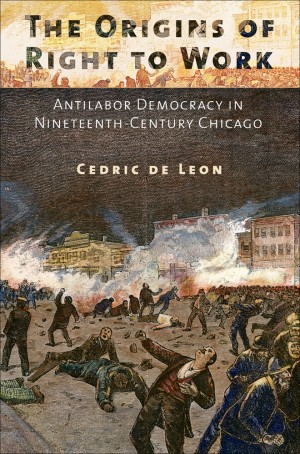
For the last several years, I have written in various forums about how the United States has entered a New Gilded Age. That is, through decimating workers’ rights and empowering corporations to dominate the political system, we are recreating the Gilded Age of the late nineteenth and early twentieth centuries. That period was noted by its incredible levels of income inequality, by the state using the military to crush strikes, by plutocrats buying off politicians with cash and illegal stock trading schemes, by economic collapses because of unregulated corporate behavior, and by a lack of regulations that allowed corporations to kill workers on the job and pollute with impunity.
In the twentieth century, workers fought to tame this corporate behavior with a great deal of success. The Progressive Era, New Deal, and Great Society were all periods where real victories over corporate misbehavior were won. But over the last fifty years, corporations and their politician lackeys have decimated unions by moving jobs overseas, retaken control of the political process through the Citizens United decision (among many other events), and rolled back regulations designed to protect Americans from corporate exploitation. As we saw in the brief Occupy movement and the outpouring of support for left-populist politicians like Elizabeth Warren and Bernie Sanders, Americans are waking up to this sudden shift in their fortunes and are increasingly outraged about inequality. But the system is so heavily weighted to the corporations that it may take decades to win back decent lives for working Americans.
Scholars are beginning to rethink the Gilded Age through the framework of the New Gilded Age. Providence College sociologist Cedric de Leon is at the forefront of this movement in his new book The Origins of the Right to Work: Antilabor Democracy in Nineteenth-Century Chicago. He examines the origins of the “right to work” idea in the mid-nineteenth century, attempting to provide a historical background to formerly union states like Michigan and Wisconsin embracing a war on unions and implementing right to work legislation that allows public sector workers to opt out of union dues while forcing unions to continue representing them. Using Chicago as a case study, he explores how workers conceived of the challenges of the new capitalist economy as avoiding dependence on employers. Self-reliance and the shunning of dependence were central to the growth of American political culture and mythology in the first century after the Revolutionary War and this shaped working-class politics of the antebellum period.
- Video: Interview with Cedric de Leon
- Meet Cedric de Leon: Saturday, September 12, 5 to 7pm, at AS220 (115 Empire St.), Providence
As the nation moved toward the Civil War, fears over the expansion of slavery creating wide-scale dependence of the white working class to the planter class allowed the nascent Republican Party to initially recruit workers into the fight against the South, even as the party’s economic ideology rapidly developed into the pro-corporate mentality that would feed the Gilded Age upon the war’s conclusion. As Chicago workers felt betrayed that the war had spawned increasingly large corporate powers, they began organizing for workers’ rights, including an 8-hour day movement in 1867 and the famous strikes of 1886 that led to the Haymarket Riot, where an anarchist responded to police violence by throwing a bomb into a crowd of police.
The political parties responded harshly to this worker challenge through both ideological constructions and state violence, such as the execution of anarchist leaders after Haymarket. Elites twisted the ideas of freedom to fit an ideology revolving around the freedom of contract. In other words, unions were unnecessary and dangerous because they interfered with a worker’s right to sign a contract for a given wage he negotiated with his employer. Of course this ideology ignored the power relations between workers and employers, as well as the actual struggles of workers in Chicago to make a living but exploiting the working class was the point.
And while the Republican Party more openly supported the Gilded Age’s new corporate order, many leading Democrats also embraced these intellectual origins of modern right to work laws. Union opponents in 1875 and in 2015 both used the language of freedom that originated in pre-Civil War America, twisted for the benefit of corporations, but which still holds mythological power among American citizens. Or in de Leon’s words “This book argues that the current generation of workers and trade unionists, like other generations before it has come face-to-face with a long-standing inheritance: a democracy—born in the epic fire of civil war—that safeguards the individual worker’s right to access the American Dream while simultaneously denying a collective route to its fulfillment.” (x)
The only place where I slightly disagree with de Leon is in his discussion of the implications of recent right-to-work legislation on labor’s relationship with political parties today. While he’s certainly correct in diagnosing the dangers of unions becoming captured by a Democratic Party that doesn’t really care about them, I cannot see an alternative outside the two-party system. While it would be nice if Republicans competed for union votes, without that happening, unions have no choice but to fight for pro-union Democrats if they want any influence over the political process at all. And given that unions have only won major political victories when Democrats have had power, moving away from that party is extremely risky, especially when there is no clear alternative or third-party path to help workers win better lives.
de Leon has written a compelling book that goes far to explain the historical roots of the recent attacks on unions. He is also an example of the amazing scholars teaching at Rhode Island colleges and universities and how much they have to offer for workers’ fights in the present.
]]>